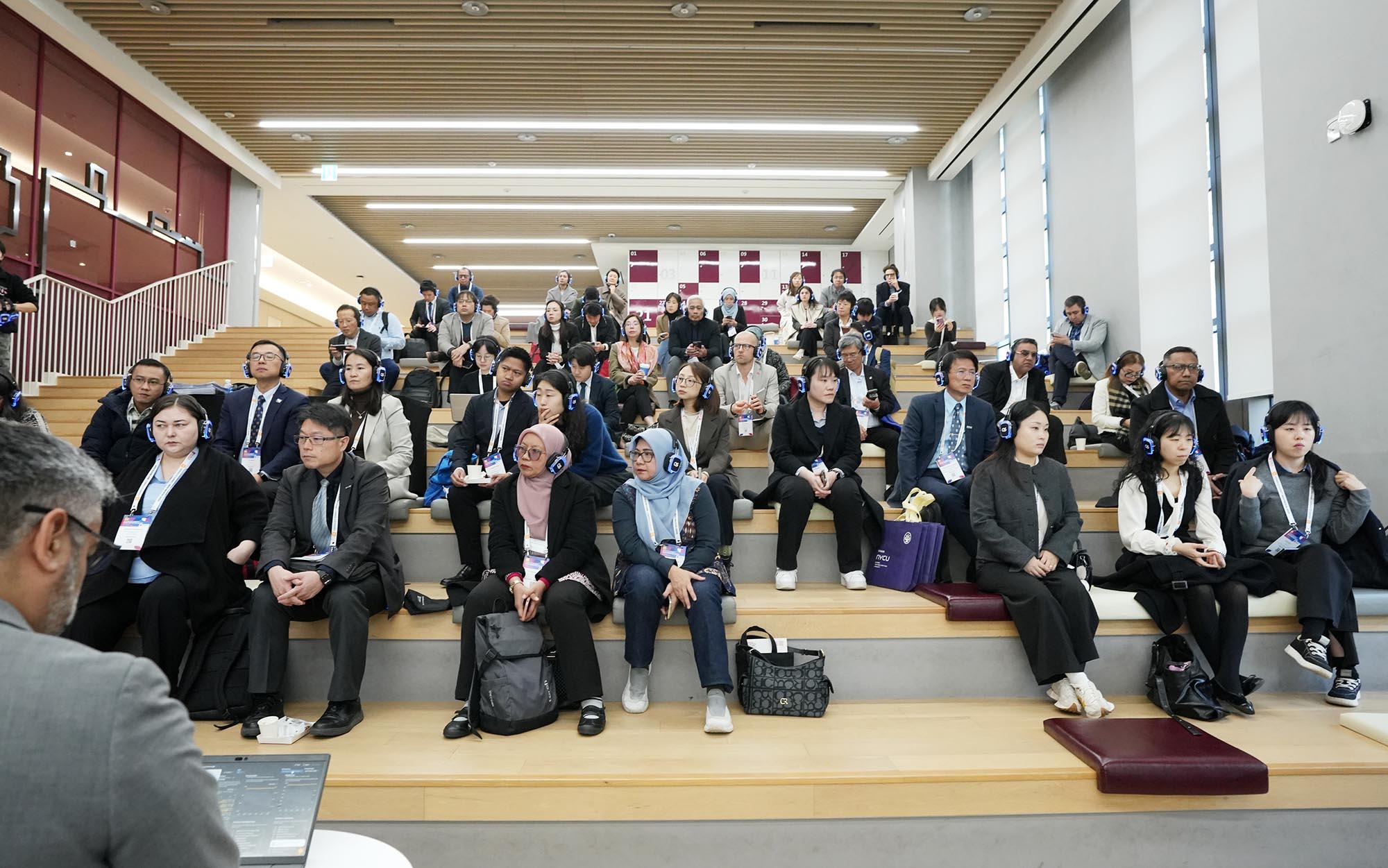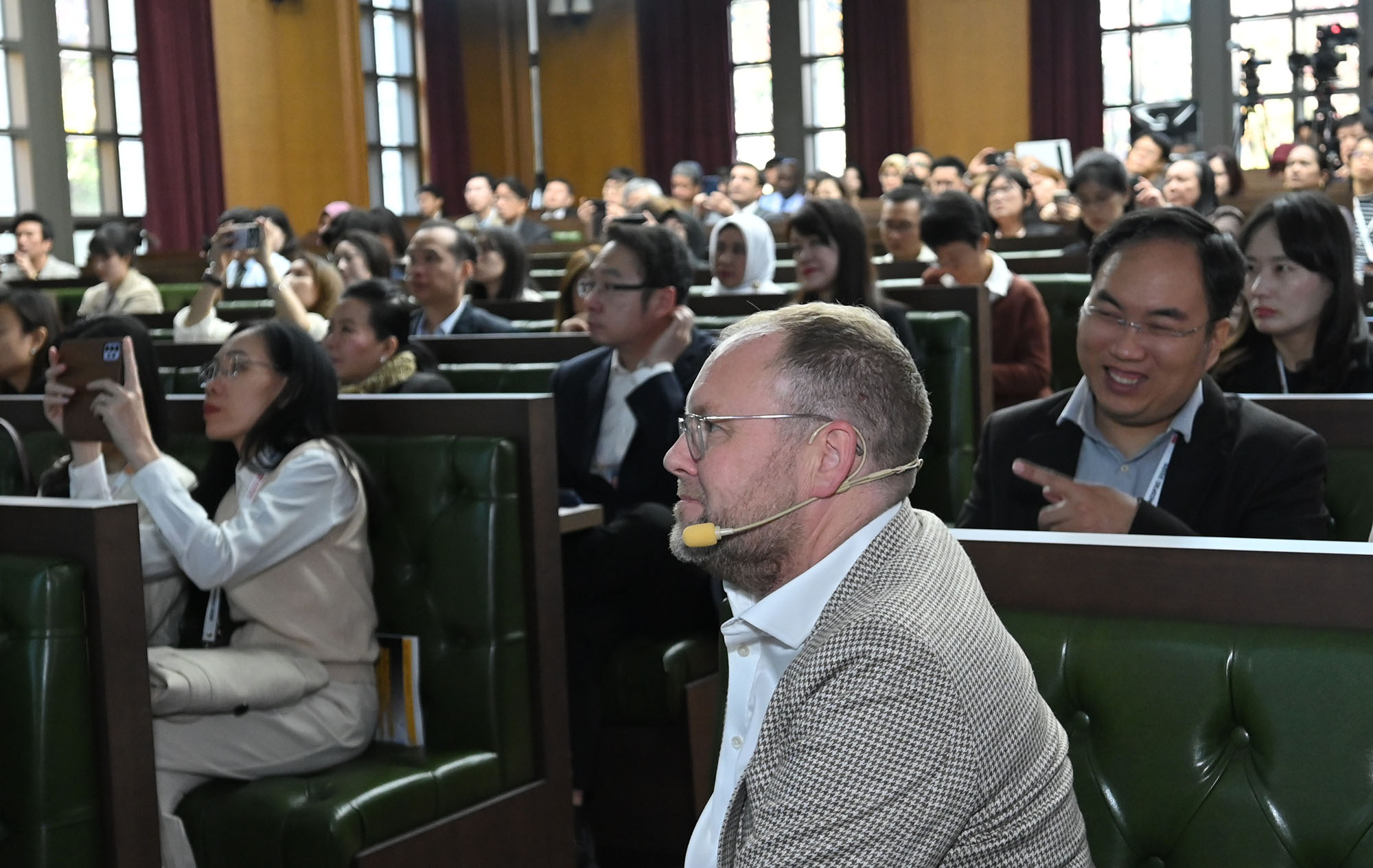Key takeaways
- Employers now demand “mix and match” talent – graduates who combine traditional business grounding with AI, data literacy and technology awareness.
- Business schools must build leadership, persuasion and strategic decision-making skills, not just technical analytics skills.
- A growing readiness gap persists, with many graduates lacking organisational awareness and practical business understanding.
- Deeper partnerships between universities and employers are critical to delivering early exposure and real-world relevance.

At the QS Higher Ed Summit: Asia Pacific 2025 in Seoul, business education leaders and industry representatives came together to examine a central question: Are business schools keeping pace with the skills economy, or are they still preparing students for a world that no longer exists?
A panel, “Built for Business? Rethinking Business School Value in the Skills Economy,” revealed a sector in transition – one racing to meet rapidly shifting employer expectations while striving to stay ahead of the curve in higher education and industry alignment.
Industry voices made it clear that the traditional formula of a strong business school graduate – one with a relevant major and strong grades – no longer guarantees job readiness. Carol Zhang, Head of HR at Huatai International, explained that employers now expect “mix and match” talent: graduates who combine foundational business knowledge with capabilities in AI, advanced tech and big data.
Yet beyond technical breadth, recruiters increasingly prioritise “learning agility and a curiosity mindset,” essential traits in roles that will continue to evolve. She added: “Looking for students with a single skillset is no longer sustainable. We need the ideal profile for the role.”
Business schools are responding, but the pace of change is varied. Raymond Xiao, Head of MSc Career Development at HKUST Business School, outlined how curriculum redesigns, credit-bearing internships, and corporate advisory boards are helping programmes stay aligned with market needs.

Students aren’t just learning through lectures; they are applying skills through competitions, hackathons, and AI-driven problem-solving challenges. “There are lots of companies providing AI challenges and hackathons,” Xiao noted, “so we sponsor our students to participate so they can learn the latest AI tools within a short period of time. You don’t have to be an expert in developing AI tools, but you must be an expert in knowing how those AI tools can solve problems.”
For Agnieszka Sypniewska, Associate Director of MBA Career Development for International Students and Global Careers at Tuck School of Business, the shift is as much about mindset as mechanics. Sypniewska emphasised that employers no longer hire business school grads to simply perform tasks, but “true leaders who can bring a vision to life and make tough decisions based on data.”
She added: “As AI replaces lower-level skills, the premium on strategic, human-centred capabilities is growing and that’s where our focus is now.”
Yet readiness gaps remain. Zhang noted that despite strong academic profiles, many graduates still lack a real understanding of how organisations operate. She stressed that “graduate skills aren’t moving at the pace that we need them to be,” even though “schools [are] doing a significant job in supporting students to prepare for their early careers.” From an employer’s perspective, she said, “we don’t see a work ready mindset.”
Zhang emphasised that deeper university–industry partnerships are essential, urging companies to “think more about the partnerships we have with universities and how we can offer early exposure into business operations. What do different departments mean? What's happening in the global market? It has to be a continuous effort from the universities and companies.”

Schools are also grappling with wide disparities in students’ AI awareness and confidence. Sabine King, Director of the Career Accelerator at UNSW Business School, highlighted efforts to bring diverse cohorts to a shared baseline through AI courses, interdisciplinary modules, and career-focused AI learning. “The goal is not only technical literacy but also ethical and societal understanding,” she said. “We must ensure students can articulate their place in a rapidly transforming labour market.”
She added: “We launched Career AI modules where our students learn how to use AI to explore career opportunities. How do you prompt your AI tool effectively to discover the career paths available to you? How do your values, skills and strengths align with different career opportunities? This aims to deliver students to industry who have clear answers about how they fit within the organisation.”
As moderator Ines Drieselmann concluded, business schools are at an inflection point. Processes, curricula, and mindsets are being rebuilt in real time. The path forward, the panel agreed, begins with experimentation – starting small, engaging enthusiastic faculty first, and looking to tech-enabled students to help shape the transformation. In today’s skills economy, agility is not just what schools must teach—it’s what they, too, must practice.









.jpeg)






.jpg)
.jpg)


.jpg)